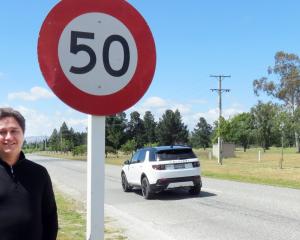Dunstan Electronics Ltd owner Richard Davidson, of Clyde, said he had fielded about a dozen calls in recent weeks from computer users about the scam.
"The scammer rings you at home, often at night, and they all follow the same format and sound very plausible. They have a foreign accent and tell you that you have problems with your computer, and to type in certain things, so they can check it, and they ask for money to fix what they say is a virus on your computer, when in fact there is no virus," Mr Davidson said.
"It's a scam that's been doing the rounds for a while but it seems to have intensified lately."
Mr Davidson said he had heard of one elderly woman being "caught out" by the scammers recently.
The Central Otago woman was contacted and told she had a virus on her computer and eventually gave her credit card details to the caller, so the "problem" could be fixed. She phoned her bank the next morning, after having second thoughts, but $283 had already been removed from her account, Mr Davidson said.
"She learned a salutary lesson, unfortunately, so I just want to get the word out and warn people not to be taken in."
Ministry of Consumer Affairs communications adviser Alastair Stewart said it was hard to know how many people nationwide had been caught out by this scam.
"Our message is, if someone rings to tell you your computer has a virus, just hang up."
Telling others about the scam was another way of tackling the problem, Mr Stewart said.
"Defence is the best weapon."
Sergeant Dave Greaves, of Alexandra, said nobody had complained to police about the scam recently, but he was aware it was doing the rounds.
"People have to remain vigilant and our advice is, never give out your credit card details over the phone to cold-callers like this."












